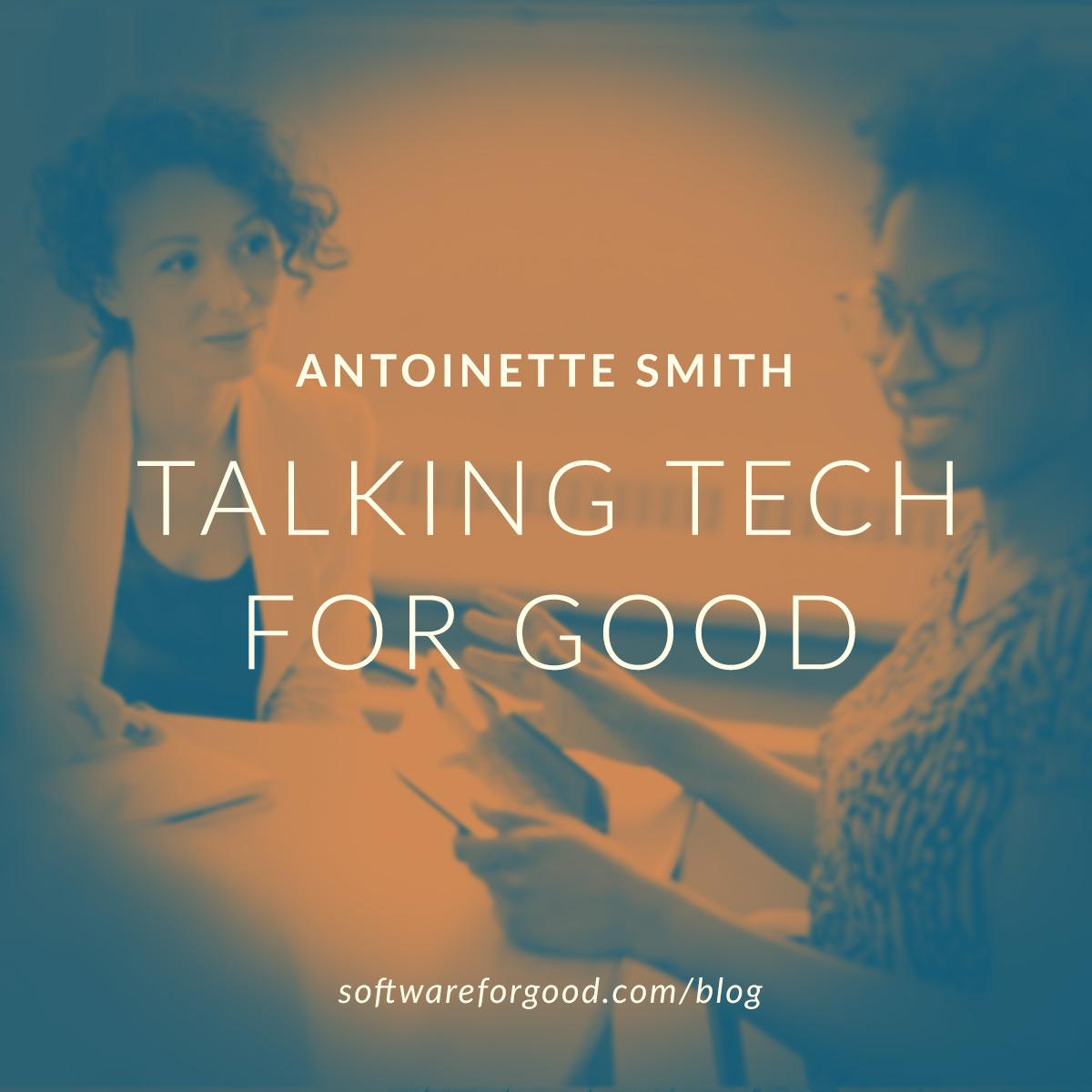At Software for Good, we help people across sectors use technology to simplify complex processes, communicate important information, and help people be more effective in their work for social and environmental impact.
In Talking Tech for Good, we talk to people who use technology for positive change every day.
Antoinette Smith
Full Stack Engineer, Glitch & Co-Founder, Techquity
Where do you work, and what is your job? 
I work at Glitch as a full stack engineer. I am also the co-founder of Techquity.
How do you use and/or build technology in your work?
At Glitch, I work with a team on building out the platform that allows anyone to build web-based tools or websites. For Techquity, I leverage quite a number of software-as-a-service (SaaS) applications: MailChimp for managing our mailing list, Eventbrite for posting events and handling registration, Squarespace for quickly building out our new website, and Google Drive for sharing documents with my team.
How does your work pursue or support social good?
I am really fortunate that both my day job and my organization allow me to focus on something I’m really passionate about: Making technology and the benefits of being in tech accessible to those who are currently underrepresented in tech.
Part of Glitch’s goal is to bring back the type of exploration and tinkering that occurred when the social web consisted of blogs and earlier social media platforms like MySpace, Black Planet, etc. Early introductions to tech shouldn’t require being exposed to the latest hardware.
Techquity is a local organization focused on creating an inclusive tech economy by focusing on supporting African Americans in tech, from first introductions to technology to navigating and excelling in their careers. We have a high-level calendar of events for this year, with a plan for one event per month, where each event touches on our areas of focus: K-12; entry/mid-level and executive career support; and entrepreneurship.
How do you define “tech for good”? What makes tech “good”?
Tech for good is technology that takes all people into account. Good tech considers vectors for abuse and acts to mitigate them. Good tech minimizes harm and makes users of that tech aware of the risks.
What interests you about the potential to use technology for change? What people or organizations do you see doing this successfully?
The CEO of Glitch, Anil Dash, has a podcast and one of the recent episodes really showcased some of the best of tech for good: Episode 9 included interviews with the founders of The Human Utility and Appolition. It really reminded me of how people really can make positive impacts on systems that feel so static and inscrutable: The Human Utility helps people pay their water bills in Detroit and Baltimore; Appolition allows subscribers to donate to community bail funds.
Can you describe a time when you witnessed the positive social impact of technology, either through something you built or through tech that made your work easier?
In October I was able to match people of color that couldn’t afford to attend a local tech conference with people that wanted to fund their entry to that conference using only Twitter.
What do you wish more people knew about tech, work for social change, or both?
Tech is for everyone! You don’t have to be a genius to get into the tech industry. And you don’t have to be in the tech industry to use tech in your work or life.
What would be your dream technology aimed at solving a problem in society?
My dream technology would be able to provide just-in-time contextual information for news stories. This would ideally help with information overload (i.e., trying to determine what news is important for you right now) and with knowing how to use that information in your day-to-day life.

